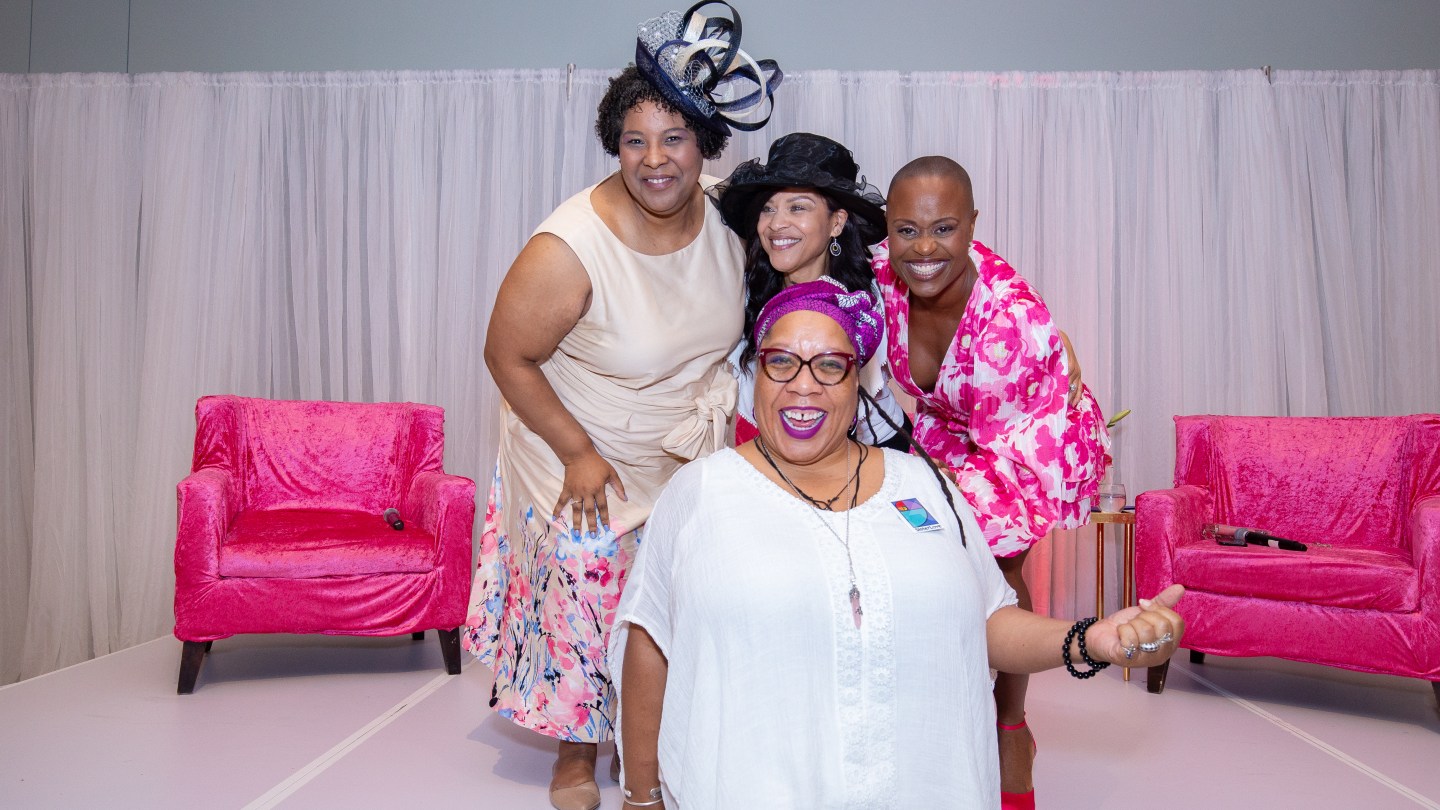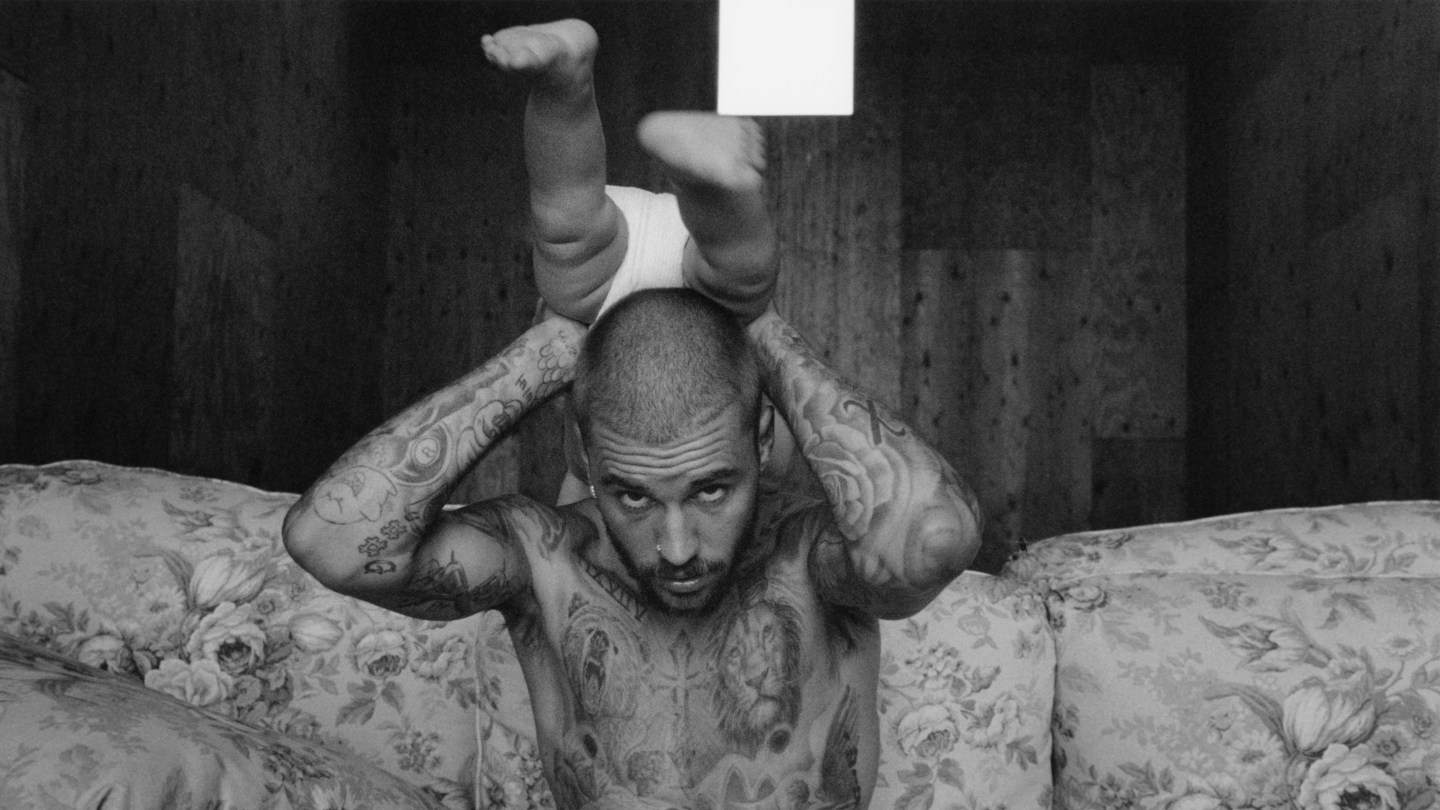This story was created in paid partnership with Gilead Sciences.
Pre-exposure prophylaxis (PrEP) has been one of the most important tools in combating the HIV/AIDS epidemic. When taken as prescribed, the daily oral pill can reduce the risk of acquiring HIV from sex by about 99%. However, just because the intervention is highly effective doesn’t mean it’s been universally adopted, says Dázon Dixon Diallo, founder and president of SisterLove, an Atlanta-based women’s HIV advocacy organization.
“The idea of taking medication when one isn’t sick or doesn’t have a diagnosis is stigmatizing for anyone because that’s not considered the norm,” says Diallo. “But if you’re taking medication for HIV, even if it’s for prevention, people who are not informed or conscientious won’t see a difference.”
Thanks to remarkable medical advances like PrEP, HIV has transformed from a once potentially fatal disease to a chronic health condition that can be carefully managed. However, it still remains a public health crisis — and historically underserved communities face the greatest disparities when it comes to accessing quality testing, treatment and care.
Long-acting HIV prevention options could help change the HIV prevention landscape by addressing the stigma and discrimination some face when having to take a daily oral pill, increasing PrEP adherence and persistence, and being more efficient for clinics and other providers to administer than more frequent office visits.
By offering a new, long-acting HIV prevention option, and also supporting culturally competent education and services, Gilead is working to combat stigma and the epidemic as a whole.

Gilead COMPASS grantee in Montgomery, Alabama
Access and adoption of PrEP are far from universal. In fact, while 94% of white men who could benefit from PrEP are prescribed it, the rate is only 14% for Black men, according to the CDC.
Meanwhile, the CDC reports that Black Americans continue to account for the highest rates of new HIV diagnoses among all demographics, and the Southern United States – which is home to almost 60% of America’s Black population – accounts for almost half (47%) of all HIV deaths and 52% of new HIV diagnoses in the U.S. This includes women, who account for about a quarter of the individuals in the U.S. living with HIV, and Black women, who have the highest rates of diagnosis among all women.
There are many reasons for these disparities, says Deborah Wafer, an executive director of public affairs in U.S. virology at Gilead Sciences. One is stigma. “I’m a nurse practitioner by training,” she says, “and the women I’ve taken care of who are living with HIV say they have to deal with HIV stigma regularly. But, everyone has a status and everyone is HIV possible.”

Deborah Wafer in Atlanta Georgia
Deborah Wafer in Atlanta Georgia
Women can also face stigma from doctors, says Wafer. “Even when a woman asks for PrEP, her physician might make a moral judgement about whether she needs it or not instead of just saying, ‘Let me do the tests and get you started.’”
However, Diallo says that SisterLove’s messaging around empowerment has been especially successful in reducing this type of stigma and expanding HIV prevention options for women: “No other prevention tool gives women the individual, independent, autonomous agency to make that decision without engaging someone else in her process. It’s about your agency, your right and achieving what you want for your best sexual health.”
Another obstacle is compliance, says Wafer. “With anything that’s daily and oral, people might miss doses,” she says. “They might not have stable housing or a place to store their medication, or they might not want people to know that they’re taking it.”
That’s one reason why Wafer is so excited about Gilead’s long-acting injectable for HIV prevention. Approved by the FDA in mid-June, the drug could help transform the HIV prevention landscape, especially for Black women, because it reframes the issue.
Culturally-competent HIV prevention education is also important. For example, educating Black women about PrEP requires a very different approach than how you might educate white gay men.
Part of the issue is geographic. White gay men often live in contained communities like the Castro in San Francisco or West Hollywood in Los Angeles, so you can reach them at the places they work, shop and go out. For Black women, says Wafer, you have to meet them where they are, in places like the hair salon or church, and then deliver the message in a way that’s tailored to them. “You can have somebody who wants to talk about science, and that’s not what people want to hear,” says Wafer. “They want to hear why they need to take this, how they can take it and what it’s going to do to them.”

Vanessa Johnson, Co-Executive Director, Ribbon and Bamby Gaddist, Faith Consultant, HVTN, in Phoenix, Arizona
To help educate Black women about HIV, Gilead supports projects like Risky Dinner Conversations, an event series where influential Black women discuss the stigmas that exacerbate HIV disparities for Black women. Since its inception, these events have engaged 32 micro-influencers and generated more than 300,000 social media impressions.
Similarly, Gilead has provided nearly $35.8 million in total philanthropic support for Black women-led and/or Black women-serving organizations in the U.S. since 2010, with $28 million granted to organizations working to end the HIV epidemic.

Gilead COMPASS grantee in Atlanta Georgia
SisterLove is one of those organizations, and Diallo says that Gilead’s grant has allowed them to expand and innovate around how they provide community-based services in Atlanta. “That’s huge for us because there are so many medical or service deserts where HIV is more prevalent and where people’s access to health care, education and services are low. Now, with our new mobile clinic and pharmacy partnership, we can bring more services to those areas.”
Other grant recipients have been Baltimore Safe Haven, a Maryland-based organization that provides life-saving HIV resources to Black trans women, and Waco Theater Center, a California-based organization and magazine publisher that combats HIV stigma through the power of visual and performing arts.
“We know that medicines alone won’t stop this epidemic,” says Wafer, “which is why Gilead is partnering with so many talented and dedicated individuals working to improve the lives of those living with or at risk for HIV. We’ll continue to provide all communities, including Black women, with the resources necessary to face this epidemic head-on.”
















Leave a Reply